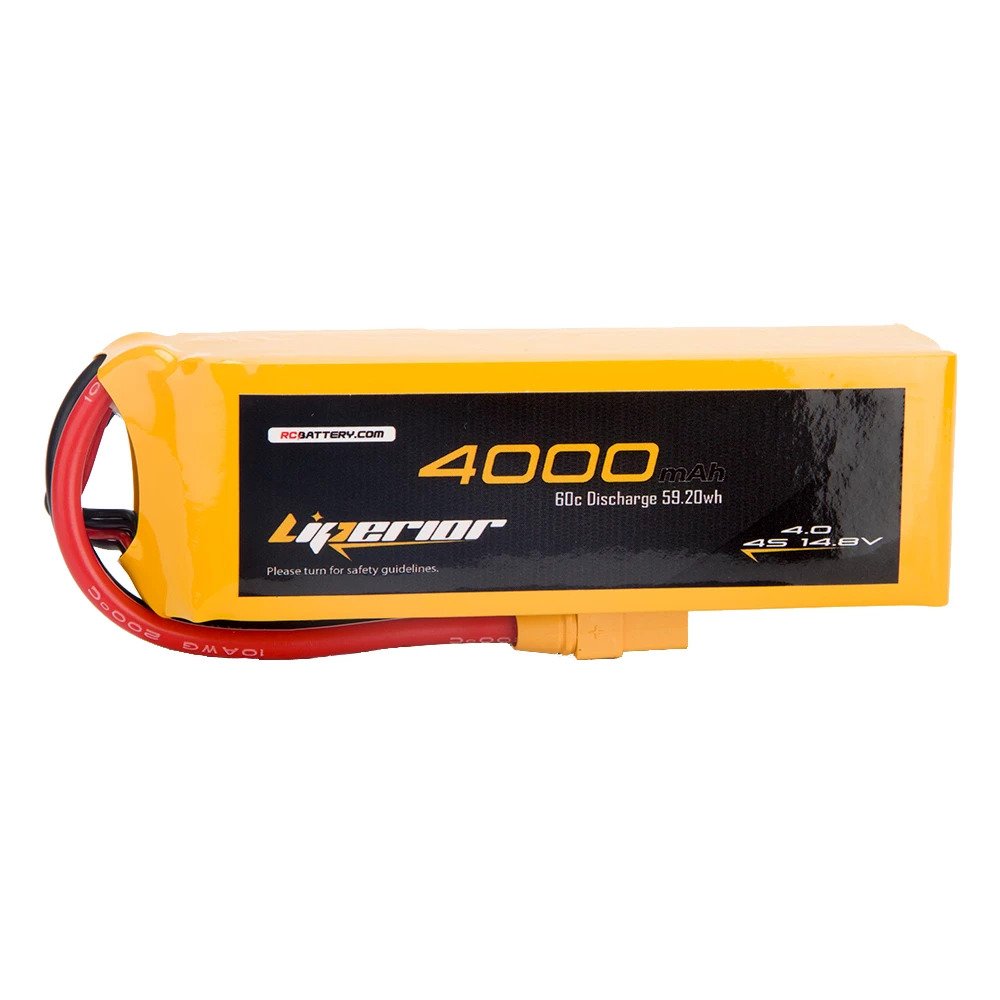One of the critical decisions every enthusiast or professional pilot must make is choosing the right batteries for drones. Among the plethora of options available for drones, two prominent contenders stand out:
Lithium-ion vs. Lithium Polymer
Each type brings its own set of advantages and disadvantages, making the choice between them a matter of careful consideration. Your decision must be based on the specific requirements and preferences. So, let’s explore these options deeper in this blog post and find out the differences between them.
I. Lithium-ion (Li-ion) Batteries:
Lithium-ion batteries have gained widespread popularity across various industries due to some crucial features, such as:
- High energy density
- Relatively low self-discharge rates
- Long cycle life
Particularly in the context of drones, Li-ion batteries offer several advantages, primarily in terms of energy efficiency and longevity. They typically have a more robust and durable construction, thus making them suitable for prolonged usage and repeated charging cycles.
Li-ion Safety Profile:
One standout feature of Lithium-ion batteries is their enhanced safety profile. Li-ion cells are less prone to swelling, leakage, and thermal runaway, reducing the risk of accidents during operation. This safety aspect is particularly crucial for drone applications, where reliability and risk mitigation are paramount concerns.
II. Lithium Polymer (LiPo) Batteries:
On the other hand, Lithium Polymer batteries have carved out a niche in the drone industry thanks to these features:
- Lightweight design
- High discharge rates
- Flexibility in form factor
Further, LiPo batteries are renowned for their exceptional power-to-weight ratio, making them ideal for applications where weight constraints play a significant role, such as racing drones and aerial photography.
LiPo Energy Profile:
The key advantage of Lithium Polymer batteries lies in their ability to deliver high bursts of current, enabling rapid acceleration and manoeuvrability in drones. This is the main reason why racing enthusiasts and professional pilots prefer LiPo batteries for drones.
However, it’s essential to acknowledge the inherent trade-offs associated with LiPo batteries, particularly concerning safety and durability. LiPo cells can be susceptible to damage from overcharging, over-discharging, and physical impact. Therefore, proper handling and adherence to charging protocols are critical for LiPo.
III. Choosing the Right Batteries for Drones
When it comes to selecting the most suitable battery type for your drone, you need to consider several factors that come into play. It can be the flight time requirements, weight considerations, or safety concerns. If you are a beginner and need some help, seek help from the battery provider. Because they’ve been in this business, they will have firsthand knowledge about these options.
For now, consider the following points. These key considerations will guide your decision-making process:
- Flight Time and Energy Efficiency:
Is flight time a primary concern to you? Do you want to maximize it? If yes, go for Li-ion batteries, as they offer a better balance of energy density and longevity. They also provide you with stable performance even over multiple charge cycles, making them ideal for extended flight missions.
- Performance and Agility:
For applications that priorities agility and rapid manoeuvrability, such as drone racing or dynamic aerial photography, Lithium Polymer batteries are often the preferred choice. The high discharge rates and lightweight design of LiPo batteries contribute to enhanced performance and responsiveness in flight.
- Weight and Form Factor:
Are you particular about your battery’s weight? For some, minimizing weight is a crucial consideration, especially for compact or lightweight drone designs. If you can resonate with this, you may choose Lithium Polymer batteries for your drones. They offer a competitive advantage due to their superior power-to-weight ratio and are also available in a variety of shapes and sizes. This allows for greater flexibility in design and integration.
- Safety and Reliability:
Safety is more critical in certain activities than in others. For example, commercial and industrial drone applications have a prominent need for safety. In such cases, Li-ion batteries can be a better option. That does not mean LiPo is risky. LiPo also has its safety mechanisms, but when compared, Li-ion batteries are safer and more robust in terms of thermal stability and resistance to physical damage. So, it will provide added peace of mind to the operator.
Last Message:
As you can see, both Li-ion and LiPo have their pros and cons. The only deciding factor here is your needs and priorities. If you want a combo of superior performance yet lightweight, go for LiPo. Similarly, if you need a combo of extra safety and longer flight times, you better go for Li-ion batteries.
So, you should start by figuring out your needs. Then, reach out to a reliable provider and discuss the available batteries for drones. RC Battery is an excellent name for this purpose. Its experts have a great understanding of different RC batteries, so you will be able to reach the final decision quickly with their help. Reach out to its representatives for further discussions.

